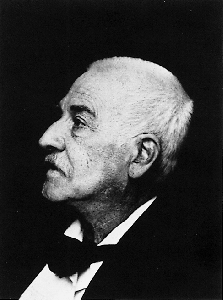A Quote by Walter Lippmann
The first principle of a civilized state is that power is legitimate only when it is under contract.
Related Quotes
Life, in a body whose order and state of affairs can make it manifest, is assuredly, as I have said, a real power that gives rise to numerous phenomena. This power has, however, neither goal nor intention. It can do only what it does; it is only a set of acting causes, not a particular being. I was the first to establish this truth at a time when life was still thought to be a principle, an archeia, a being of some sort.
The seventeenth century is everywhere a time in which the state's power over everything individual increases, whether that power be in absolutist hands or may be considered the result of a contract, etc. People begin to dispute the sacred right of the individual ruler or authority without being aware that at the same time they are playing into the hands of a colossal state power.
I feel that if people investigate the emergence of government, of State power - if they examine the logic of State power historically, and more specifically in the United States - they will find that the concept of limited government is not tenable once they adopt some type of libertarian principle.
There is as yet no civilized society, but only a society in the process of becoming civilized. There is as yet no civilized nation, but only nations in the process of becoming civilized. From this standpoint, we can now speak of a collective task of humankind. The task of humanity is to build a genuine civilization.
The lordship of man over man is the root cause of all corrupt rule. In the light of this principle, no laws are legitimate except God's law, and no government is legitimate except those who rule as God's deputies, implementing God's laws alone, which no-one has the power to change. So I say to you: if you really want to root out corruption now so widespread on God's earth, stand up and fight against corrupt rule; take power and use it on God's behalf. It is useless to think you change things by preaching alone.
In the first place, the church can ask the state whether its actions are legitimate and in accordance with its character as state, i.e., it can throw the state back on its responsibilities. Secondly, it can aid the victims of state action. The church has an unconditional obligation to the victims of any ordering of society, even if they do not belong to the Christian community. The third possibility is not just to bandage the victims under the wheel, but to put a spoke in the wheel itself.
It is unfortunately none too well understood that, just as the State has no money of its own, so it has no power of its own. All the power it has is what society gives it, plus what it confiscates from time to time on one pretext or another, there is no other source from which State power can be drawn. Therefore every assumption of State power, whether by gift or seizure leaves society with so much less power; there is never, nor can be, any strengthening of State power without a corresponding and roughly equivalent depletion of social power.































